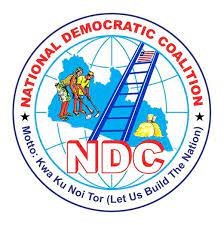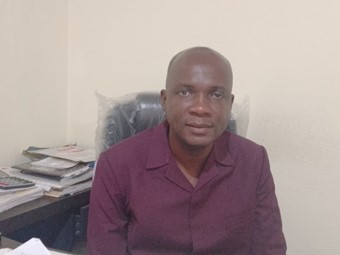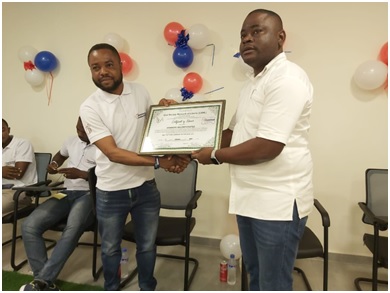H.E. Ambassador Dee-Maxwell Saah Kemayah, Sr., Minister of Foreign Affairs, has called for an urgent institutional reform at the level of the Mano River Union (MRU), Economic Community of West African States (ECOWAS) and the African Union (AU) to drive the vision of inclusive, equitable, and rights-based sustainable economic growth and development across Africa.
Minister Kemayah said the African Environmental Rights Initiative could not come at an opportune time, especially as the Continent’s resilience is being tested, responding to triple crisis of COVID, the Climate and Conflict, which he said he is convinced are all in line with the African Union’s roadmap, “Agenda 2063: The Africa We Want”.
“Let me assure you that you have a reliable ally and a champion in the government and people of Liberia to advance the African Environmental Rights Initiative. This administration remains quite supportive, and will engage other governments across the continent while working with civil society and the private sector to consult and agree on a roadmap to promulgate an environmental rights instruments for Africa,” Minister Kemayah intoned.
Serving as keynote speaker at the Webinar on “Human Rights and the Environment: Evolving Practice in Africa”, held on Wednesday, January 26, 2022 virtually, Minister Kemayah stated that Liberia’s Constitution does not contain a clearly specified provision on the “right to a healthy and livable environment”, Article eleven (11) of the Liberian Constitution states that “All persons are born equally free and independent and have certain natural, inherent and inalienable rights of enjoying and defending life and liberty.” Relying on this provision, the framers of the Act to Establish Liberia’s Environmental Protection Agency interpreted the “inalienable rights of enjoying and defending life and liberty” to mean a healthy and livable environment to enjoy and defend that life and liberty. Thus, Liberia’s Environment laws provide that “Every person in Liberia has the right to a clean and healthy environment, and a duty to take all appropriate measures to protect and enhance it”.
The Dean of the Cabinet, who has been hailed in many quarters as a “great reformist” at the Ministry of Foreign Affairs, said Article 15 (c) of the Liberian Constitution mandates that “there shall be no limitation on the public right to be informed about the government and its functionaries.” Being guided by this provision, the National Legislature enacted the Freedom of Information Act, which provides access to information for all residing in the country, in 2010.
The Liberian Chief Diplomat said, “As you proceed with the design of your roadmap to promulgate this initiative, I am aware that one of the major barriers has been the political will from leaders across Africa and elsewhere in the world. Let me assure you, however, that Liberia under the leadership of His Excellency, Dr. George M. Weah, will provide full support, and be your ally and champion for this initiative.
“Let me note with satisfaction that on the September 23, 2021,during the Seventy-Sixth Regular Session of The United Nations General Assembly, the President of Liberia spoke about the environment.
“For far too long, we state actors, including those on my own continent who have faced the harshest extremes of weather and climate, have been guilty of window-dressing climate issues with rhetoric and passive declarations. Liberia humbly submits to this august body that now is the time for concerted and decisive action. Liberia, for its part, reaffirms our commitment to continue our good stewardship of our critical ecosystem of tropical rainforest, coastal mangroves and interior peatlands.
“The President further said, ‘Our forests are the last remaining untouched tracts of forested land in this region and contain some of the highest above-ground carbon stocks of any forest in the world, even higher than the carbon stocks in the great Amazonian Forest. As one of the last reserves of such high carbon stocks, it is imperative that Liberia’s forests are maintained for the future. My government reiterates its commitment to do so’.”
He recalled that in November, at The 26th United Nations Conference on Climate Change, held in Glasgow, Scotland, United Kingdom, President Weah reiterated his commitments made at the United Nations General Assembly and said, “It is our intention to maintain these forests in prime condition, and that is why we have outlined in our Revised Nationally Determined Contributions specific climate-resilient and adaptation measures that we are determined to implement in order to guarantee the wellness of these global lungs. Since signing the Paris Accord, Liberia has lived up to its promise to reduce deforestation from logging and timber production and from agriculture. We have expanded our protected forests, and we are prepared to protect more forests and to intensify our work with local communities to expand their options for food and fuel in order to reduce pressure on forest resources.”
The conference was organized by the World Resources Institute, The Access Initiative, Alliance for Land, Indigenous and Environmental Defenders, CIVICUS, UN Environment Program, and Earthrights International. Several African environmental and human rights organizations from West, East, South and Central Africa under the umbrella of the Access Initiative organized the webinar that explored developments on human rights and the environment in Africa.







